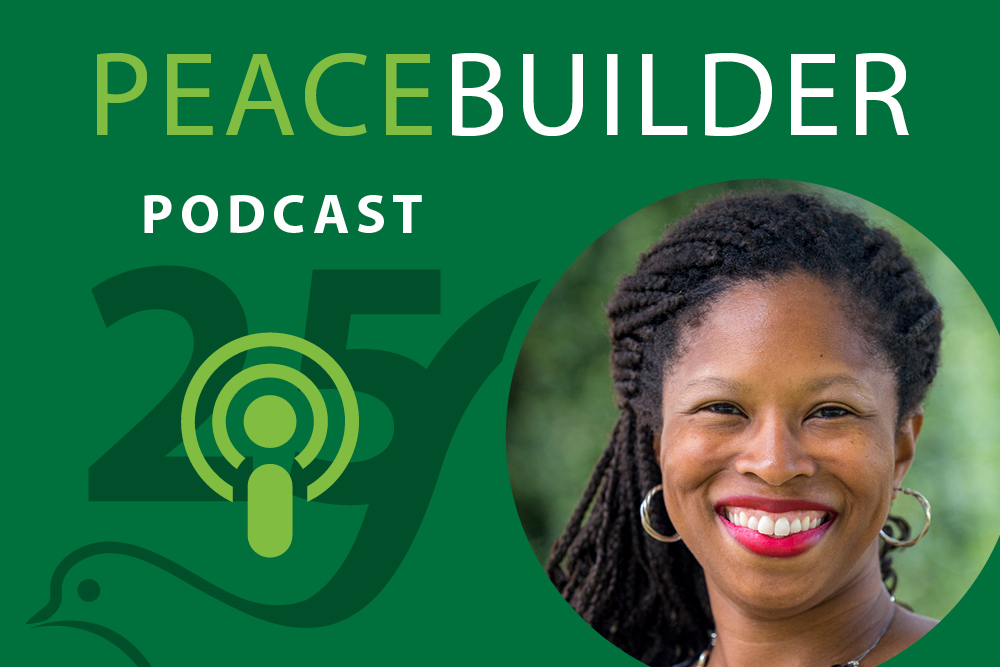Johonna Turner, assistant professor of restorative justice and peacebuilding at the Center for Justice and Peacebuilding (CJP), is the featured guest of episode six of the Peacebuilder podcast. Turner speaks about her history of community organizing, activism, and youth development work in Washington, D.C.; the Faith Integration Task Force she helped form at Eastern Mennonite University; and her vision for CJP’s role in transnational movement-building.
The podcast is just one of the ways the center is celebrating its 25-year anniversary. Hosted by CJP executive assistant and anniversary celebration committee chair Patience Kamau MA ‘17, the 10-episode series features faculty and staff members reflecting on the history of CJP and their own peacebuilding work. A new episode drops every other week on the Peacebuilder website.
Turner first came to CJP in 2010 as a participant in the Strategies for Trauma Awareness and Resilience program. She had been doing a variety of organizing and arts-based activism in Washington, D.C., and “was looking for a place where I could get some more skills to supplement and to really support me in the work that I was doing … the youth identified trauma healing as an approach that was especially important for breaking cycles of violence that depend upon repressive, state-sponsored punitive measures.”
She joined the CJP faculty in the fall of 2015, and became the co-director of the Zehr Institute for Restorative Justice in 2018.
About three years ago, Turner found herself in a number of conversations with faculty and students who wanted “to be more intentional about creating spaces for deliberate reflection on faith in the classroom, and spirituality writ large.” She banded together with Carl Stauffer, Tim Seidel, and Amy Knorr to create the Faith Integration Task Force to facilitate EMU as a “multi-faith space in a Christian university,” that both welcomes perspectives from other faiths while honoring its roots in Christian theology and spirituality.
Out of those conversations, Turner has created classes such as “Peacebuilding Through Biblical Narrative” and “Justice, Peace, and the Biblical Story.” One of Turner’s goals through these courses is to understand the injustice, oppression, and violence “that are preventing abundant life for all people,” and find ways to discuss these issues in the church – a space she says is “often depoliticized.”
While Turner says that CJP’s sense of community is a great strength, she also sees “the need for more intentional integration of critical theory within the curriculum, particularly feminist perspecitves, critial race perspectives … queer perspectives in our curriculum and pedagogy as well, attention to racial and gender justice, attention at large to how systems of oppression are at the root of violence.”
And her vision for CJP at 50?
“A crucible, an incubator, of peacebuilders, organizers, artists, and activists who are not only able to connect their work to what’s happening in their own local contexts, but also able to see the linkages between what’s happening at their own places and what’s happening at other places. Who are able to challenge the systemic roots of oppression that give rise to acts of direct cultural and structural violence. And who are able to more deeply work at challenging all systems of oppression, including heterosexism.”
4/1/2020

I will like to involve in discussion